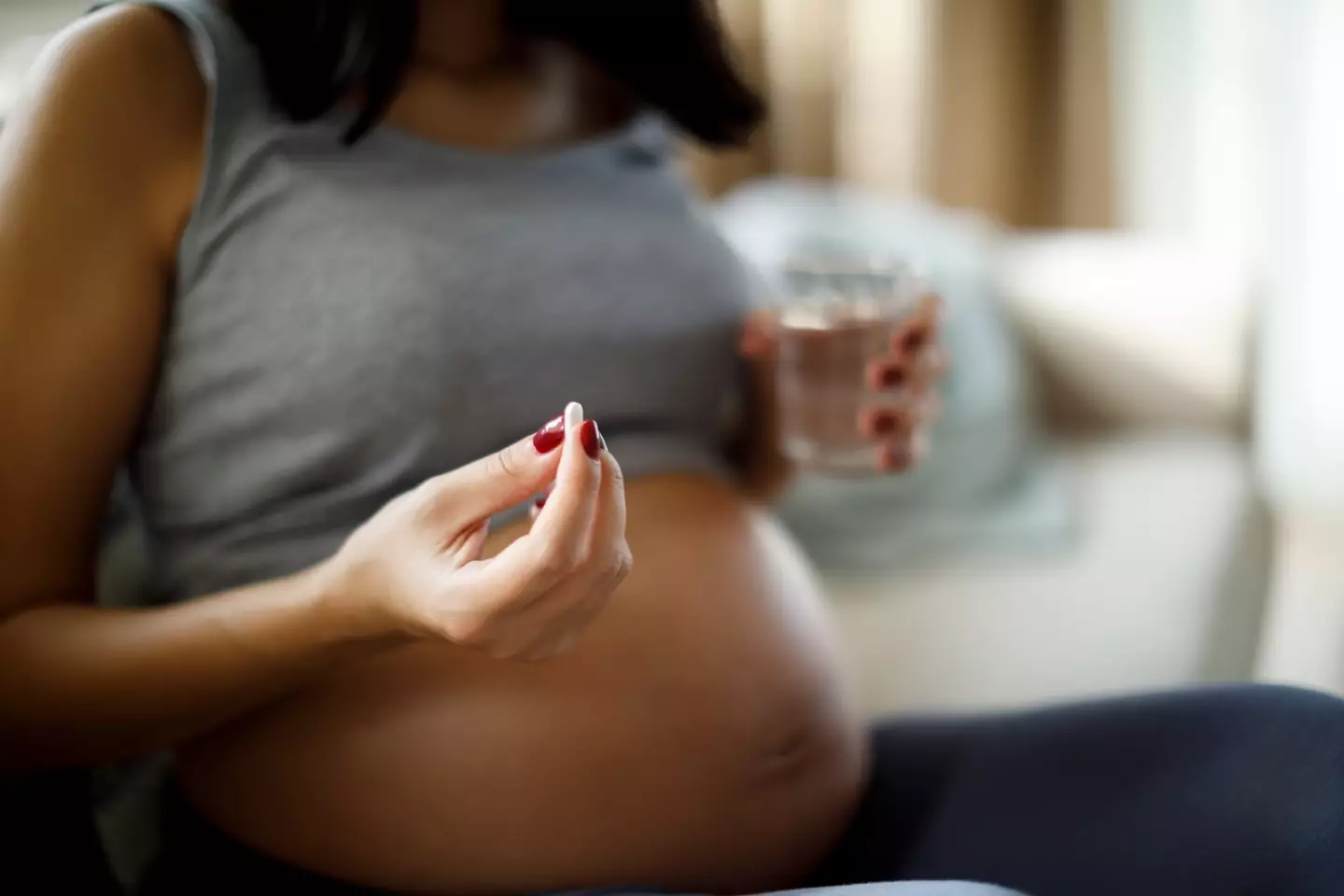.jpg)
Pregnant women in the US could be banned from taking paracetamol, following an announcement from Donald Trump.
There's already a sizeable list of things to avoid when pregnant, including alcohol, cigarettes, unpasteurised milk and cheese, pâté and raw and undercooked meat.
Now, the over-the-counter painkiller medication could be next on the list of things that pregnant women can't have, if the US government goes ahead with a new decision as predicted by the Washington Post and Politico.
Also known in the US as acetaminophen or by the brand name Tylenol, Donald Trump teased 'an answer to autism' while speaking at a memorial for the assassinated political speaker, Charlie Kirk.
Advert
Medical professionals are waiting to see what the Trump administration does next, and whether a full ban will come into place meaning pregnant women can no longer take the painkiller in the US, or if it will be recommended to be avoided apart from when treating high fevers.
.jpg)
What do the current guidelines say?
As it stands, acetaminophen/paracetamol is actually the first thing medical experts recommend for pain management in pregnancy.
Guidelines from the American College of Obstetricians (ACOG) and Gynecologists, Britain’s Royal College of Obstetricians and Gynecologists (RCOG), and other medical organisations all recommend it and say it is safe.
According to the NHS: “Paracetamol is the first choice of painkiller if you’re pregnant. It’s commonly taken during pregnancy and does not harm your baby.”
However, expectant mothers are warned not to use ibuprofen, naproxen and other nonsteroidal anti-inflammatory drugs in the third trimester.
The ACOG and RCOG warn that these medications can lead to birth defects.
President Donald Trump’s announcement
Donald Trump made a surprising speech at the memorial for Charlie Kirk over the weekend, with him announcing: "I think you’re going to find it to be amazing. I think we found an answer to autism, how about that?"
The POTUS told the crowd: "You know what 'MAHA' is? That's right, Make America Healthy Again."
He said the announcement is 'one of the most important things that we will do', and he is set to hold a news conference today (September 22) with Health Secretary Robert F. Kennedy Jr. and Dr Mehmet Oz, who is administrator of the Centers for Medicare and Medicaid Services.
"We're going to be talking in the Oval Office in the White House about autism, how it happens," he added.
"So, we won't let it happen anymore, and how to get at least somewhat better when you have it, so that parents can help their child," Trump explained.
Kennedy Jr, has recently been criticised for his comment saying the US is in the grip of an 'autism epidemic' fuelled by 'environmental toxins'.
The Washington Post and Politico have quoted officials as saying paracetamol in pregnancy is set to be linked to autism in the press conference.

Is there a link between paracetamol and autism?
There is currently no expert-approved evidence of a link between the use of acetaminophen or paracetamol and autism.
Current studies have provided conflicting information about the risks involved for a developing foetus.
A 2024 study in Sweden found no link between taking the drug while pregnant, and autism and ADHD in nearly 2.5 million children.
However, a review was carried out in 2025 of 46 earlier studies.
This review suggested there was a link with the medication and increased risks of these conditions.
What have researchers said about paracetamol and pregnancy?
Researchers from the Icahn School of Medicine at Mount Sinai, Harvard University and more said the research is not concrete proof.
The experts said pregnant women should continue to use acetaminophen, but at the lowest possible dose and for the least amount of time.
They wrote: “We recommend judicious acetaminophen use — lowest effective dose, shortest duration — under medical guidance, tailored to individual risk-benefit assessments, rather than a broad limitation.”
Topics: Pregnancy, Health, Women's Health, Donald Trump, Politics, NHS